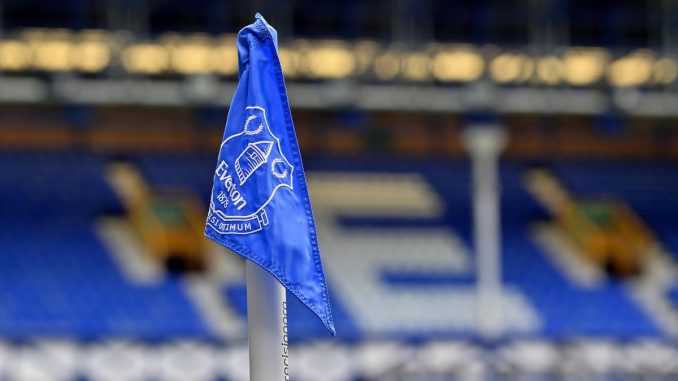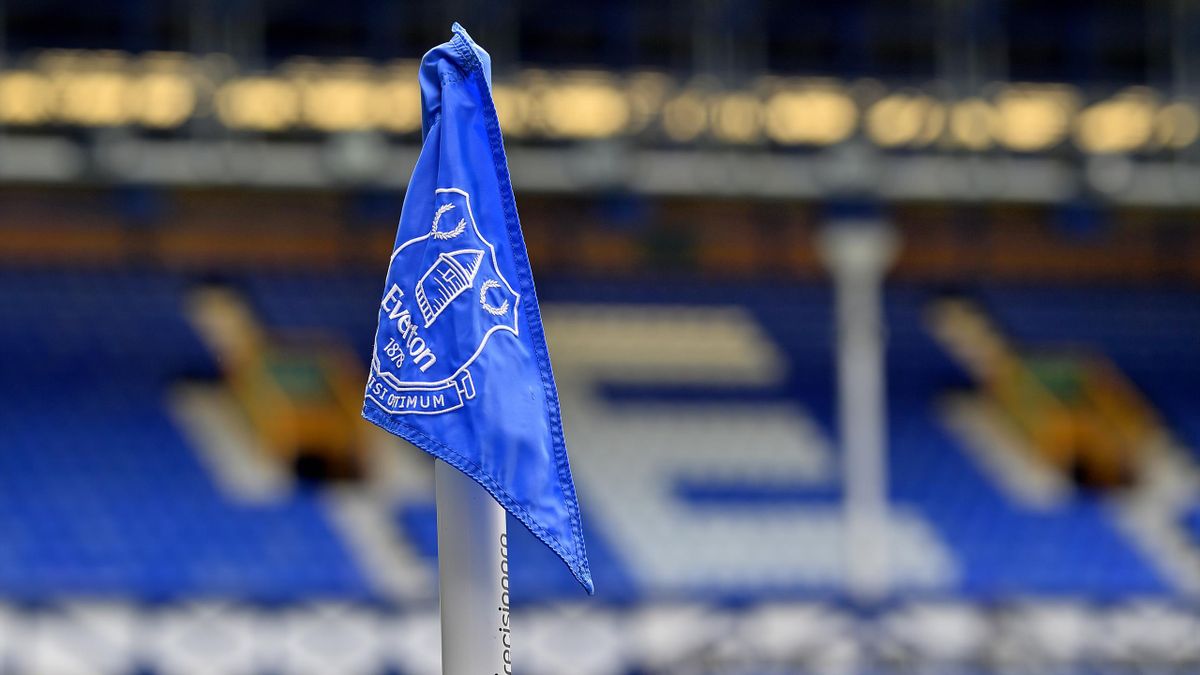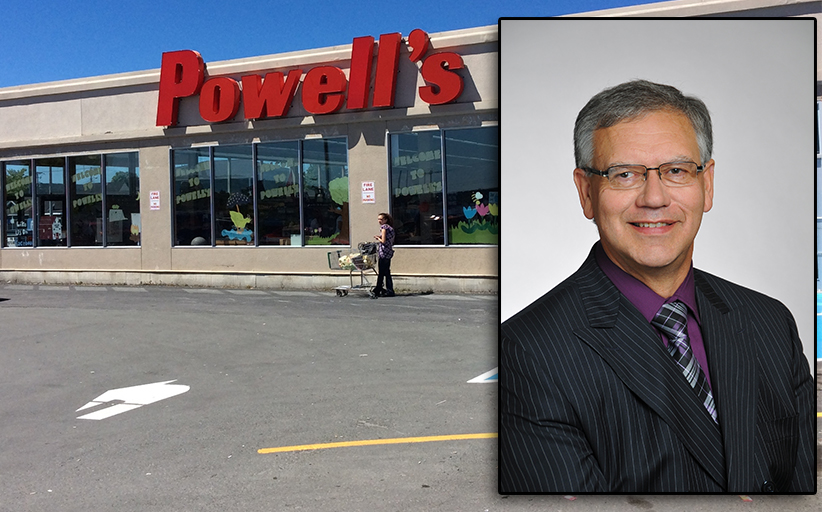

Dave Powell discusses the growing gap between the big six and the rest for Everton and other clubs.
Nothing less than the best will do. It is a motto that has been woven into the fabric of Everton Football Club since 1938, when the latin phrase ‘Nil Satis, Nisi Optimum’ was added to the club crest for the first time.
There are club mottos all over the country that emphasize the importance of striving for the top and following your dreams. But, in the modern game’s financial structure, particularly in English football, is it even possible to dream?
As a fan of a team that plays in the sixth tier of English football, my joy comes from week to week, the hope of the occasional promotion, the dream of one day getting to the FA Cup third round and landing a big fish so that myself and the other few thousand can have a big day out. There’s not much more to be desired from supporting a club like Chester. It’s similar to the fan contract I signed when I first became a fan 30 years ago.

READ MORE: 777 Partners must make an obvious decision ahead of Everton’s new stadium move.
READ MORE: ‘You won’t find anywhere else in the world’ – work on a one-of-a-kind feature at Everton’s new stadium begins.
But football fandom is not for everyone. Everton, for example, is one of the most storied clubs in English football. Nine times crowned King of England, five times FA Cup winners, and winners of the European Cup Winners Cup, a club that was so remarkably brilliant in the 1980s has been left looking up at the rest for some time now, forced to watch on as the big six pulled away in terms of revenues as the Premier League became increasingly globalised.
Let’s get this straight. Every Premier League club does well when it comes to obtaining funds generated by the competition’s unparalleled global popularity. The Championship play-off final is known as ‘football’s richest game’ for a reason.
Everton has been a member of the Premier League since its inception in 1992, the year the English game truly changed and the divide between those who could dream and those who could achieve began to take root.
The Blues have made huge sums of money from their long tenure in the Premier League, but despite having the longest tenure of any top-flight club in English football, the Toffees have always had to bear the stigma of being part of ‘the other 14’. Where there were seasons of success it was seen as overachievement and campaigns that should be enjoyed and savoured in isolation, and a new generations of fans who maybe didn’t get to see what a wondrous team Everton were in the 1980s were conditioned to thinking that ‘Nothing But Pretty Good Was Good Enough’.

Everton was handed a draconian 10-point deduction earlier this month for violating the Premier League’s profit and sustainability regulations, with an independent commission upholding a charge brought forth by the Premier League against the club. It came after the Toffees were found to have violated PSR by nearly £20 million, with the club losing more than £400 million in the previous four years.
Everton defended themselves by citing mitigating factors. The pandemic had a significant impact on the club, which had a stadium built on the banks of the River Mersey to manage, but the Russian invasion of Ukraine had a significant impact on the club, with key sponsors such as USM and MegaFon ending their partnerships, and there was to be no further support through any partnerships related to Alisher Usmanov-owned firms.
Farhad Moshiri, Everton’s owner since 2016, has poured in more than £700 million since acquiring the club, and with a significant portion of his wealth invested in the USM business through his 5% stake, there is little appetite for him to continue losing money ahead of the club’s sale to American investment firm 777 Partners, a deal that still requires regulatory approval before being approved.
This isn’t a piece about whether or not 777 Partners are the right people to take over, or how Everton got into such a financial mess. It has to do with the fact that the punishment came as a result of Moshiri’s willingness to throw money at the club, admittedly without a defined strategy, in an attempt to disrupt the established nature of things in the Premier League.
Manchester City were able to lay the groundwork for future success and turn the ‘top five’ into a ‘big six’ thanks to heavy investment arriving before Financial Fair Play rules were tightened around 2011. Big spending had occurred, but so had methods of generating additional revenue to better support the spending when the restrictions were imposed. Achieving regular Champions League qualification helped raise those revenues further, and by the time it became the same five or six teams alternating in being the annual four to reach Europe’s top level club knockout competition, the die had been cast for the rest.
If a book is to be written on how not to invest in a Premier League football club, Moshiri should write the foreword.

The British/Iranian billionaire is likely to be one of the last, if not the last, super-rich individuals whose investment in a football club was motivated by vanity and a desire to be the person who delivered for fans, rather than any real expectation of making a large profit when the time came to sell the club. There have been so many mistakes under his ownership, ones that have dragged the club to the brink of disaster, but the intentions at the outset were almost certainly centered on making Everton great again.
Private equity and investment firm money has poured into European football in recent years. In the Premier League, Clearlake Capital owns Chelsea, Arctos Sports Partners and RedBird Capital Partners own Liverpool indirectly through Fenway Sports Group, and owners such as FSG own Liverpool and ENIC own Tottenham Hotspur, the Glazer family at Manchester United and Kroenke Sports and Entertainment at Arsenal all have a real focus on the bottom line and increasing revenues year after year in order to create value in terms of the price tag the football club carries. There is a commercial imperative for these clubs to be successful and generate large sums of money, whether to increase the value of holding companies or to provide a return to investors.
However, the Premier League is lucrative for all involved, and matching those revenue streams to allow for greater spend is nearly impossible for the rest, although the Saudi Arabian Public Investment Fund-owned Newcastle United is trying, bit by bit, to join that elite crowd. Even with an ownership group with unlimited wealth, there is no guarantee of that.
Everton were never able to increase revenues to match spending, which is why they found themselves in, and continue to find themselves in, this financial hole. If you miss the moon, you’ll still land among the stars, right? Unfortunately, no. You’ll end up sanctioned and having to borrow more and more money from various sources to meet payroll obligations and allow work on the stadium, which will be a revenue game changer in time, to continue.
The Premier League is the world’s most popular football league. It has touch points in every corner of the world and hundreds of millions, if not billions, of fans of its clubs, the majority of which are among the top six that have managed to dominate financially and competitively.
But what about Leicester City’s Premier League title in 2015/16? That was a miracle; it wasn’t supposed to happen, and it’s unlikely to happen again. It’s gotten even more difficult since then.
Leicester’s victory was out of this world. However, the following season saw a familiar story unfold, with the best talent being pilfered by the biggest clubs, as N’Golo Kante went to Chelsea and Riyad Mahrez left for Manchester City. There was never a chance that they would build on their success, keep their stars, and create a new problem for the big sides. In a free market, players can move wherever they want if the price is right, and that’s exactly what they did to achieve their own goals.
The Premier League relies on the success of its big clubs to drive revenue and media rights forward. Some argue that the league has enough competition to make it a compelling product. With so many of the global audience following one of the big six, it’s easy to see why there’s no desire to make it too open. Football’s success has long been built on the formation of major clubs and dynasties, whether it’s Real Madrid, Barcelona, Liverpool, or Manchester United. That hasn’t changed much.

However, there should always be room for disruptors because that is how any business thrives and grows. However, there are fewer and fewer reasons for some fans to fantasize. The biggest clubs aren’t too concerned about the odd flirtation with breaking up the order of things that a Brighton & Hove Albion or an Aston Villa might make. Moises Caicedo and Alexis Mac Allister were both signed, and Evan Ferguson will be in the near future.
What happens if Unai Emery leads Villa to the Champions League next season, and Manchester United and Chelsea part ways with Erik Ten Hag and Mauricio Pochettino? They would certainly believe they could entice him away from his work at Villa Park, because that is how things are. ‘You had your fun, lads; we’ll take it from here,’ says the captain.
But there’s something depressing about it all, about how difficult it must be to be on the outside looking in. Is Burnley’s goal to win the Championship and then bounce around the leagues? Maybe that’s a good business if you can make it work through parachute payments year after year, but isn’t it true that the best some people can hope for is seventh? Is it correct that Everton have a realistic ceiling on what they can achieve each season?
That is why there has been such an emphasis on data analytics. People have always attempted to outwit the house, but the house always wins. That’s all a little depressing to me. Someone has to be the worst every season, and not everyone can win; that’s just sport, football, and life. However, every club should have the right to dream every season. It’s becoming more difficult to do so, which saddens me.

Leave a Reply